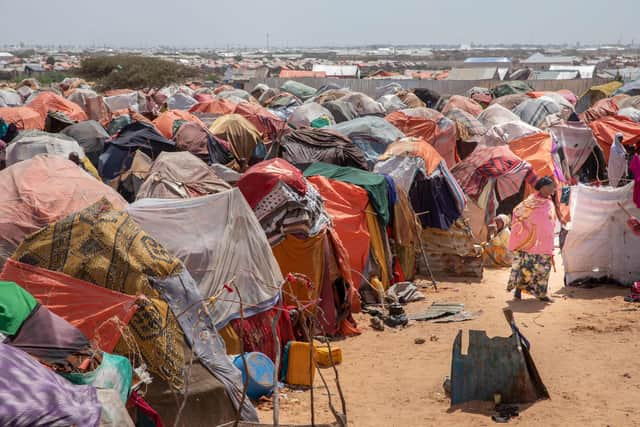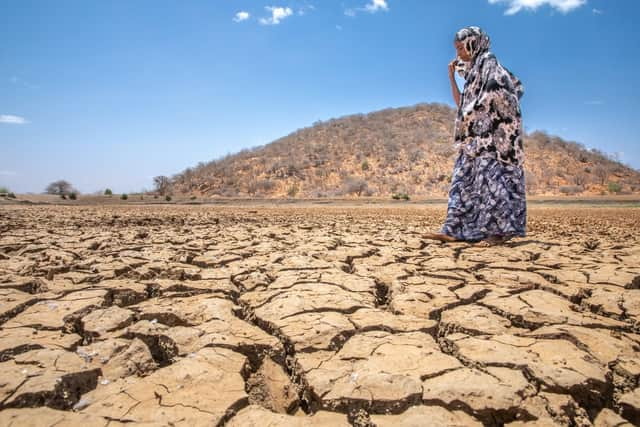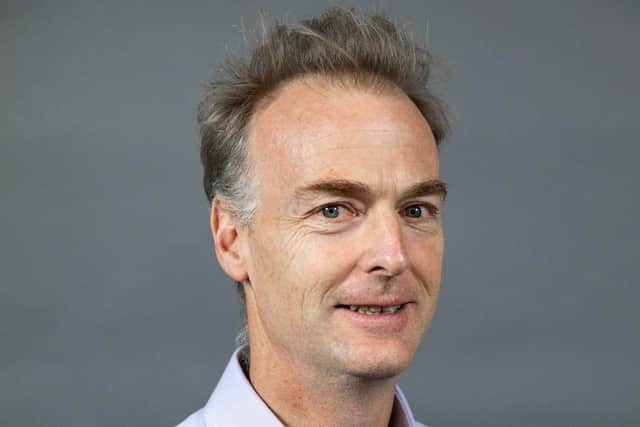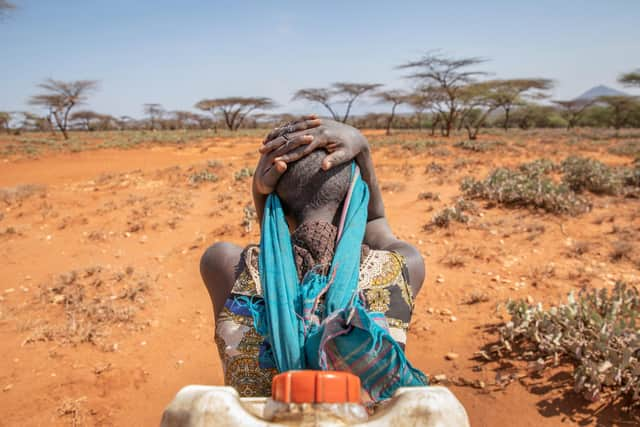Call for urgent action as 'deteriorating and catastrophic' combination of climate change and rocketing cost of living sees 18 million facing starvation in the Horn of Africa
Shocking estimates suggest one human is dying there every 48 seconds.
Some areas in the east African region are experiencing the driest conditions and highest temperatures recorded in the past four decades, and forecasts suggest the pattern is set to continue.
Advertisement
Hide AdAdvertisement
Hide AdMore than 18 million people are already affected across Ethiopia, Kenya and Somalia, with at least 10 million children suffering acute hunger, malnutrition and thirst – a dramatic rise from 7.25 million two months earlier.
More than 1.7 million of them are currently in need of life-saving treatment.
Somalia is worst-affected, with 45 per cent of the population classed as food insecure and more than 200,000 individuals facing famine-like conditions – up from 80,000 in April – as four seasons of failed rains take their toll.
International aid agencies are warning urgent help is needed to address the immediate crisis, but longer-term solutions are also crucial to protect fragile communities as global warming drives increasingly extreme conditions.
It is estimated in excess of 800 million people across the globe go to bed hungry every day.


Sean Granville-Ross, regional director for Africa at Mercy Corps, is based in neighbouring Uganda.
On a visit to the Mercy Corps headquarters in Edinburgh this week, he said: “The numbers are so big it would be easy to get numb and give up hope.
“When we talk about food insecurity facing seven million people in Somalia, that’s more than the whole population of Scotland, and there are 23 million at risk of starvation across the Horn of Africa.”


Advertisement
Hide AdAdvertisement
Hide AdThe region is one of the world's most conflict-prone and fragile, with up to 80 per cent of the population subsistence farmers.
The drought, which has caused massive losses of livestock and failed harvests, is prompting growing numbers of people to migrate from countryside areas to urban centres in search of work.
Displacement camps are springing up and growing every day.
“What we are seeing now is the reality of changes in the climate coming to bear,” Granville-Ross said.


“Geopolitics are playing out and inevitably the regions which are poorest and most vulnerable are the hardest hit.
“The very poor feel it quickest.”
A two-pronged approach is needed, he says – food, water, shelter and cash to meet the most urgent requirements; plus an action plan to rebuild communities and create a more robust way of life for the future.
“We must address the current humanitarian needs as quickly and efficiently as possible to avoid a deteriorating and catastrophic situation in the Horn of Africa, particularly in Somalia, which is already on the verge of famine,” he said.
“As a result of climate change, more severe droughts are predicted to continue ravaging the region.


“We must not just meet immediate needs, but also strengthen communities' long-term resilience.
Advertisement
Hide AdAdvertisement
Hide Ad“That is where we must have an urgent dialogue with host governments, donors, and international organisations.”
Ukraine and Russia are major suppliers of fuel, food commodities and agricultural inputs to Somalia, Ethiopia, and Kenya.
Since the beginning of the Ukraine crisis, the price of cooking oil, beans, rice, sugar and flour has nearly doubled in Somalia, while the cost of agricultural fertilisers has rocketed by 75 per cent in some places.
Grain and oil prices have trebled in countries such as Somalia, which relies on Russia and Ukraine for 90 per cent of its wheat imports.
Mercy Corps is providing immediate assistance to alleviate hunger and meet basic needs while also providing water, dietary supplements to prevent malnutrition and veterinary services to pastoralist families to keep remaining livestock alive and secure people’s livelihoods.
Granville-Ross stressed the importance of “smart partnerships” to help arid countries adapt to the “new reality” of a warming planet.
“We shouldn’t create a picture of total despair,” he said.
“The world has the knowledge to help.
“We just need to translate it into action.
“Everyone has hopes and aspirations, but these people are in trouble at the moment.
“We must use that knowledge and our resources to enable them to take care of themselves, their families and their communities, so they can live a healthy and productive life and for their children to thrive.
“That’s all anyone anyone wants.”
Advertisement
Hide AdAdvertisement
Hide AdA number of organisations working in the Horn of Africa have launched appeals to help people living through the worst crisis ever to strike the area.
More information about Mercy Corps and what can be done to help can be found at www.mercycorps.org.
Comments
Want to join the conversation? Please or to comment on this article.
